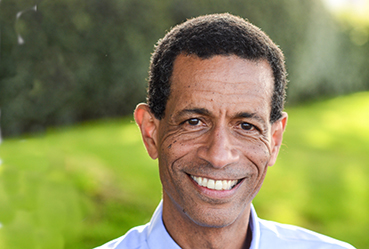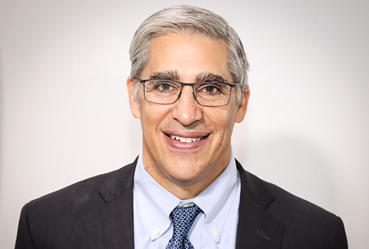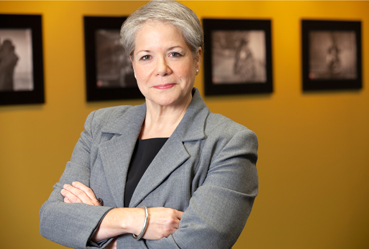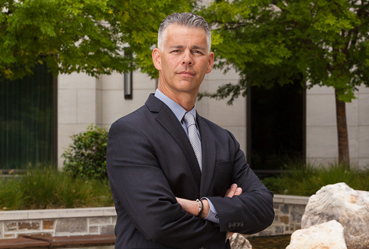Investee leaders within Blue Meridian Partners’ Nationwide Solutions portfolio have maintained their focus on growing the reach, impact, and influence of their models, even amidst the disruption of the COVID-19 pandemic, the urgency of the movement for racial equity, and the jolts of America’s struggling economy. Here, they share how they’ve been more nimble than ever in rethinking their approaches and capitalizing on opportunities to better meet the needs of the young people and families they serve.

“COVID affected everyone, but we have been at the epicenter of this pandemic – our clients are frontline health center workers who’ve been overwhelmed with COVID and vaccine response. The shadow upside is that it’s forced us to rethink how we do our work in ways that are genuinely exciting.
If you asked before the pandemic, we would’ve said our secret sauce was our deep, high touch, in-person training. We required health centers to close for the day. With COVID, we morphed to virtual videoconference training, and then took it one step further so agency staff could take pieces of the training on demand. That created enormous flexibility for our clients…now, multiple centers can take parts of the training together and it’s spurred this wonderful cross-agency learning. The measurable outcomes are just as strong as with the in-person model.
I know we wouldn’t have changed our delivery model with this kind of speed without this kind of catastrophe. That’s a big change that will stay with us forever. And that significant reimagining of how we do our training work has inspired a broader exploration of how our operating model can be redesigned to be delivered most effectively and efficiently. We anticipate 25–35% cost savings, significantly increased go-to-market speed, all in service of a much more repeatable, scalable model. We’ve ripped the band-aid off entirely in ways that are super exciting.”

“We’ve innovated upon our original strategy, first by co-locating our training program at community colleges to reach more students more cost-effectively. But that still didn’t get us as far as we needed to go relative to the number of young adults in need.
We saw that we could leverage the fact that there are many terrific training organizations out there that provide young people with marketable technical skills but lack the means to connect them to available job opportunities and upward economic mobility. We also recognize the value of providing support for a well-managed transition into long-term employment. For example, a group of the largest companies in greater Boston, Massachusetts Association of Community Colleges, and Year Up are collaborating – we’re augmenting young adults’ hard skills with the last-mile training and wraparound services they need to transition successfully into companies committed to hiring.
Our ability to learn key lessons, demonstrate impact, and make these pivots never would’ve been possible had we not been supported to get where we are today…to have strong randomized trial results, to have served 35,000 young adults so far. It’s allowed us to establish a position from which to have greater impact through building an advisory capacity for large companies that want to pursue a diverse, equitable talent strategy.
The OneTen initiative, an employer coalition that wants to positively impact economic mobility, especially among Black Americans, asked Year Up to help. This translated into thousands of hours helping to grow this initiative because we recognized the impact it could have. Companies who’ve joined OneTen have agreed to reduce their four-year degree hiring requirement from 88% to 50% [and replace that requirement with specific skills and competencies]. This will be a huge boost in skills-based hiring.”

“The planning for our next stage of scaling and growth coincided with the pandemic. We focused heavily on how the pandemic could negatively impact this plan, but we had no true basis for knowing what might really happen.
We were quite surprised then that, even at the height of the pandemic, we signed scaling contracts with two major states, had six proposals pending, and were in promising conversations with eight others. States were eager…they weren’t in as negative a financial situation as we feared. Wendy’s Wonderful Kids brings an evidence-based strategy that works, and state policy and child welfare leaders recognized that adoption permanency is an obligation they wanted to fulfill. Blue Meridian support has enabled us to build the business development and fundraising teams, and the aggressive follow-up strategy we needed to continue the Wendy’s Wonderful Kids program without pause.
We now see through the numbers the possibility for continued extraordinary growth and may realize our original goal of scaling nationwide much sooner than planned.
We are also engaging in a deep dive into racial equity and social justice. There is an unacceptable overrepresentation of Black children and families in the child welfare system and we are assessing what our impact could be in helping to solve this urgent problem. By shifting our organizational lens, engaging in a year of staff learning about the historical roots of race, racism, and whiteness and its impact on the child welfare system, we more deeply understand the impact on vulnerable children and their movement into care and comparatively negative outcomes. We are encouraged that the Wendy’s Wonderful Kids model does not result in disparate outcomes for the children we serve in many states, but our work forward will also continue to focus on communications, and policy and practice changes needed to transform the narrative and outcomes for BIPOC children and families.”

“In 2020, as the pandemic spread, Nurse-Family Partnership merged with Child First, a leader in providing at-home, evidence-based mental health services and social supports to families with young children affected by social and economic inequality. A big driver was the need we heard from communities we served. We saw the opportunity to serve a broader population – and we recognized the gaps in meeting the growing mental and behavioral health needs of communities. We wanted to provide stronger services when it comes to addressing childhood trauma and toxic stress.
Given the growth we have achieved with Nurse-Family Partnership, we are confident we can leverage our infrastructure to scale multiple programs. Our pipeline for Child First has grown to juggling a half-dozen opportunities…we’ve launched a replication in Colorado, we are evaluating the potential in Louisiana, and we are expanding services in Connecticut and North Carolina.
We’re excited to build a continuum of care for families. A few generations from now, we’re hopeful that cycle of intergenerational poverty is broken for families and communities.
This is a transformative time for our organization – over the years we’ve pushed ourselves to think differently. The investment from Blue Meridian Partners has given us the latitude to do that R&D to provide communities what they’re asking for.”